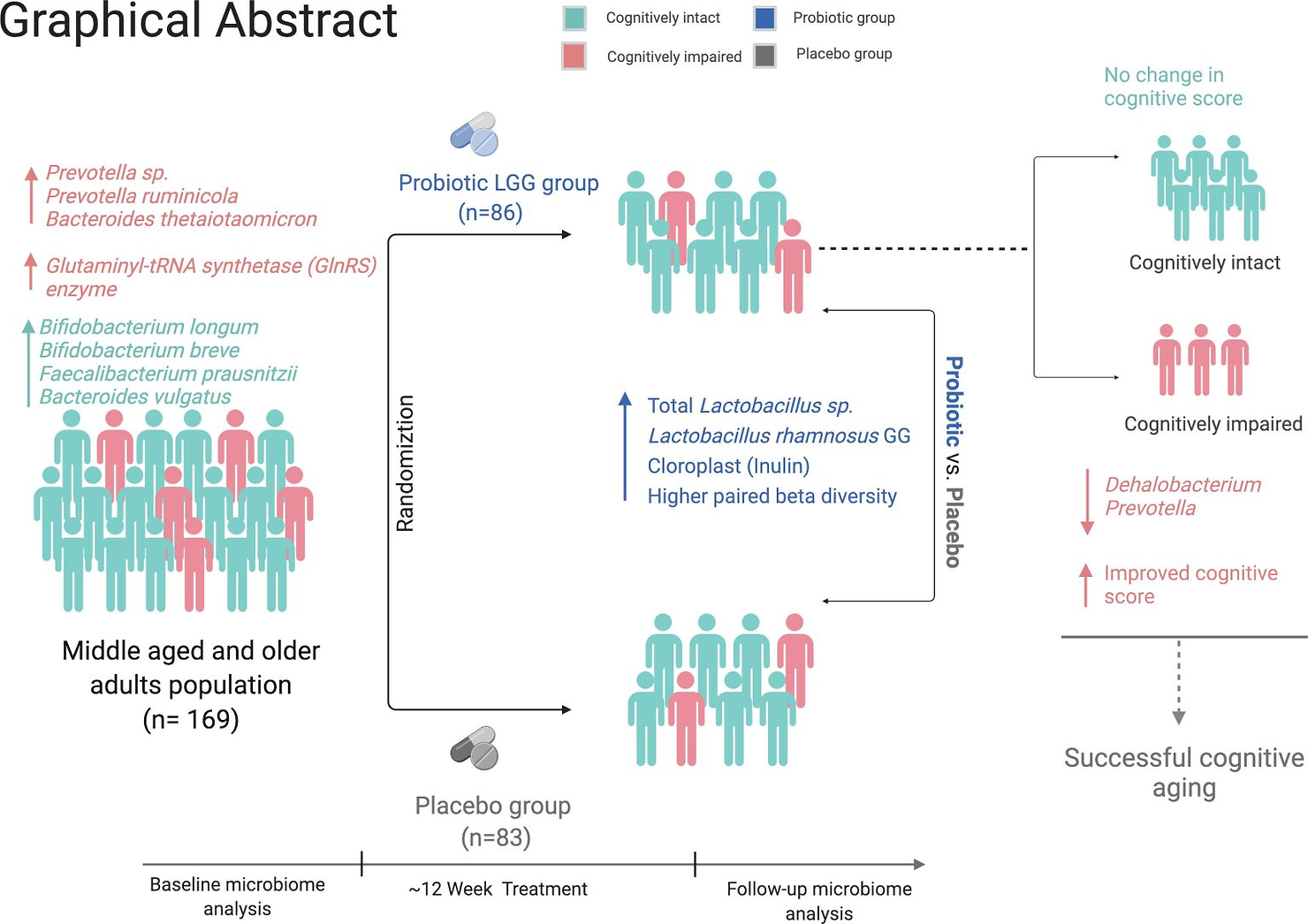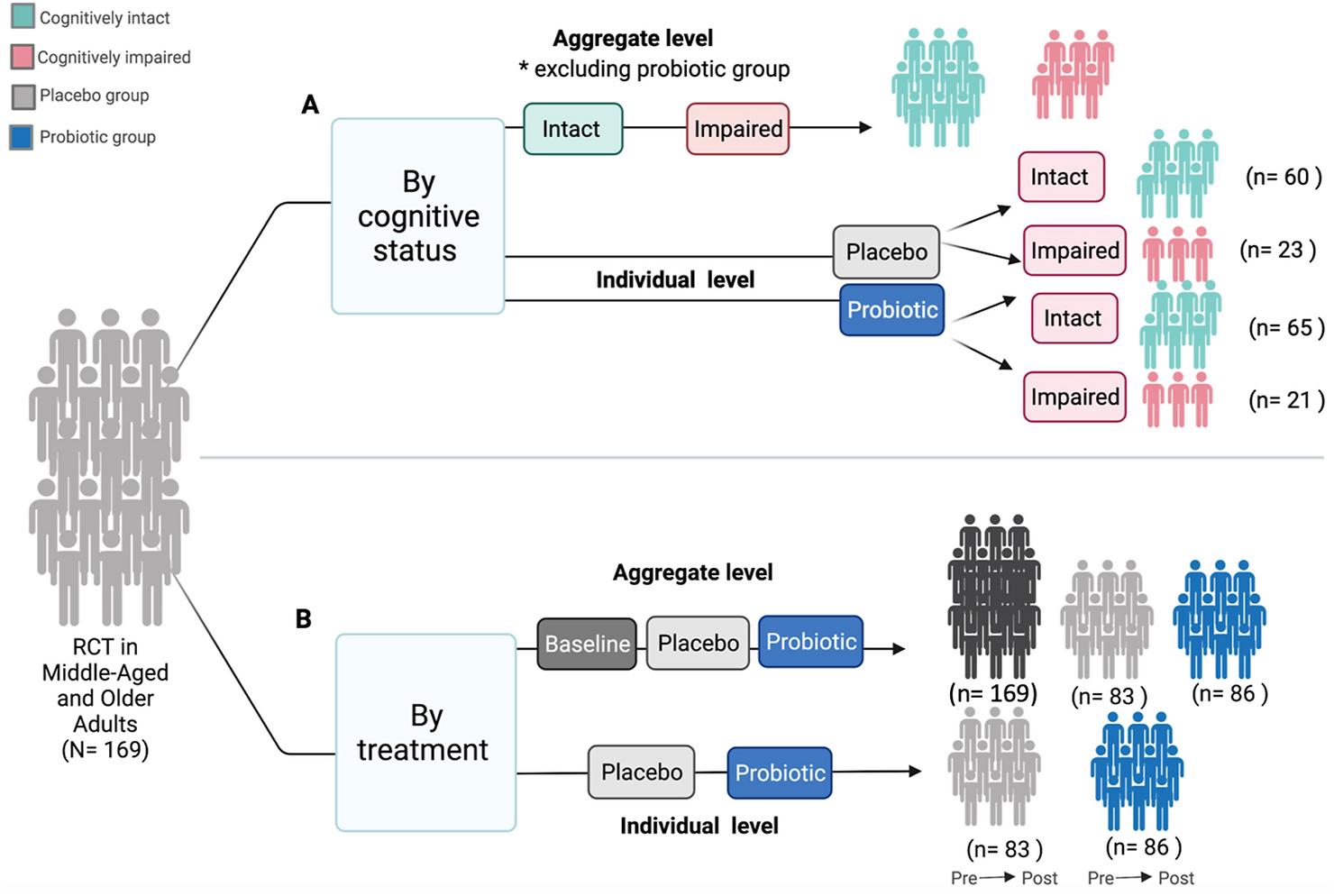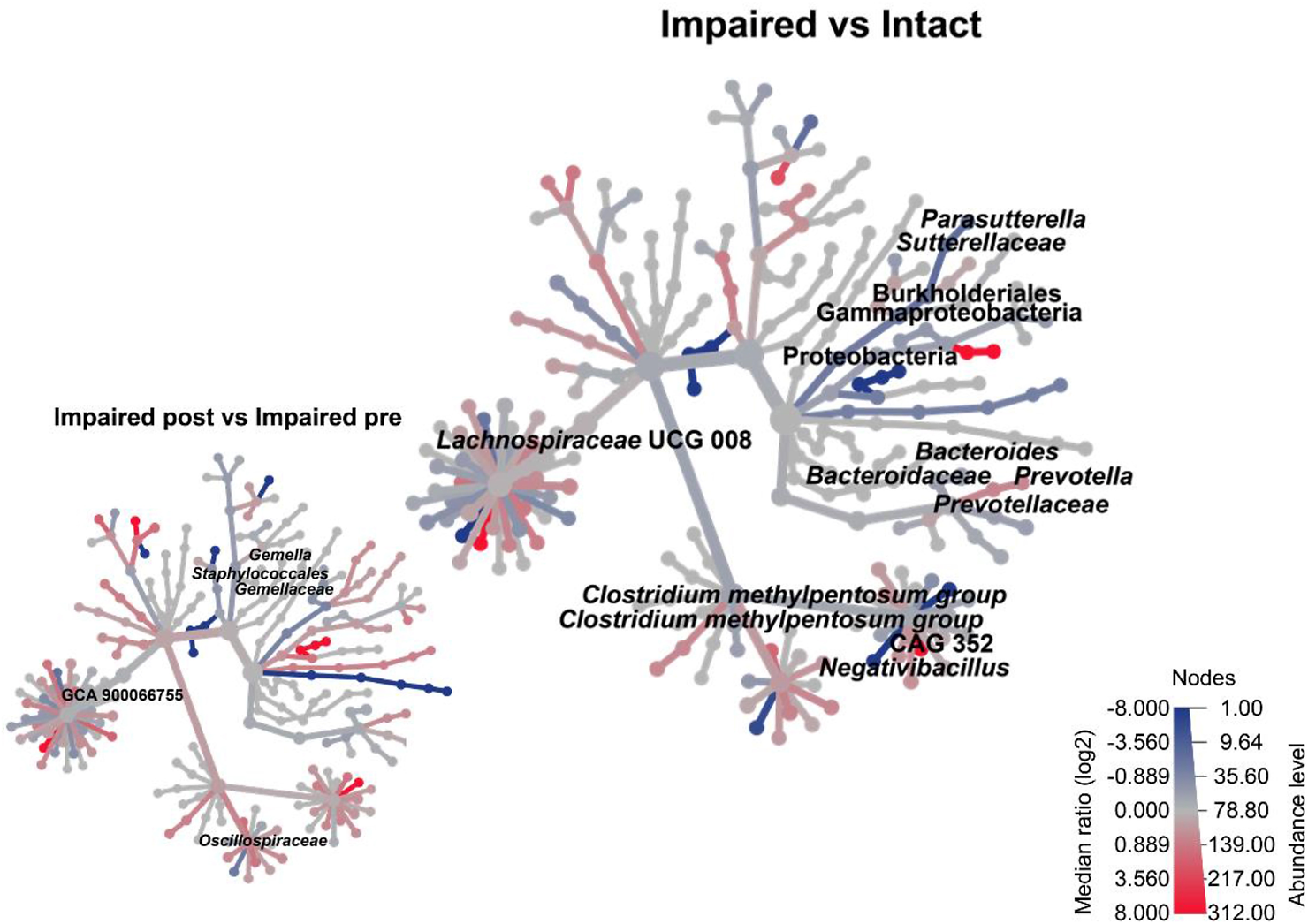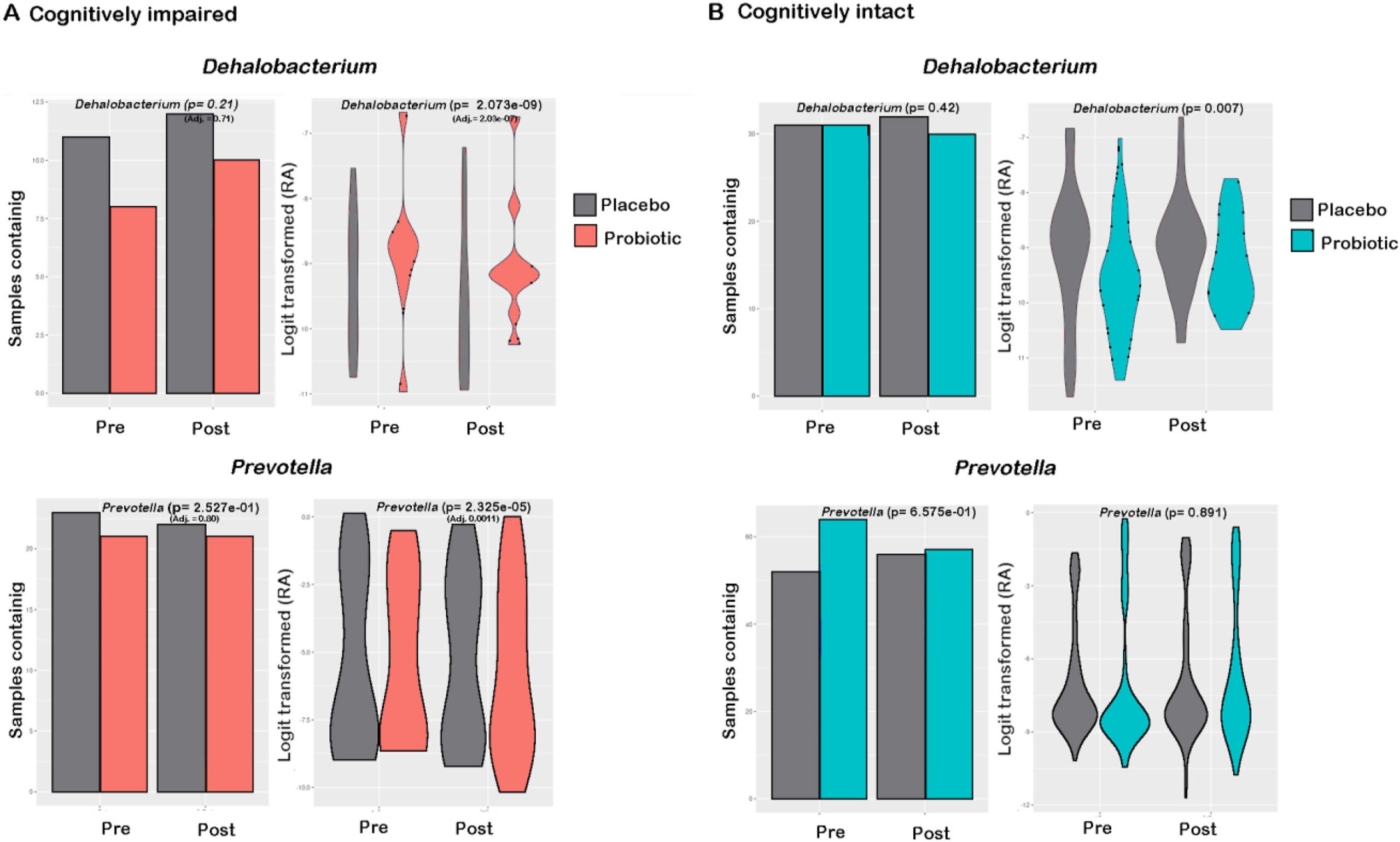The intricate connection between gut health and brain function is increasingly capturing scientific interest. A groundbreaking study highlights a novel approach to combat cognitive decline in older adults using probiotics.
Researchers found that a three-month regimen of Lactobacillus rhamnosus GG (LGG) improved cognitive scores in individuals with mild cognitive impairment (MCI). These cognitive gains coincided with changes in gut microbiome composition, marking an exciting step toward harnessing gut health to support brain function.
Cognition refers to processes involved in acquiring and applying knowledge, such as memory, attention, and executive function. As people age, these abilities often decline. Physiological changes, including reductions in brain size, accompany this decline.

With global life expectancy increasing significantly over the past century, age-associated cognitive impairments are becoming more prevalent. By 2050, the proportion of the global population aged 65 or older is expected to double, emphasizing the need for effective strategies to preserve cognitive health.
Emerging research links gut microbiome health to brain aging and neurological conditions. The gut microbiome—a collection of trillions of microorganisms inhabiting the gastrointestinal tract—plays a pivotal role in maintaining overall health.
Imbalances in this microbiome, known as gut dysbiosis, have been associated with cognitive impairments and diseases like Alzheimer’s, Parkinson’s, and stroke.
Evidence also suggests that the gut microbiome differs between older adults with and without cognitive dysfunction. Factors such as diet, physical activity, and smoking further influence these microbiome-cognition relationships, underscoring the complexity of this connection.
Related Stories
Psychobiotics, probiotics designed to influence mental health, are gaining attention as potential tools to support cognitive function. These live microorganisms promote beneficial gut bacteria and reduce inflammation, which are critical for brain health.
Studies have demonstrated cognitive benefits from probiotics in individuals with Alzheimer’s disease, MCI, and even healthy older adults.
One particularly promising strain, LGG, is noted for its ability to survive in the gut due to its bile resistance and adhesive properties. LGG has been linked to protecting the gut lining, reducing inflammation, and even enhancing neurogenesis in animal studies.

The latest research, presented by Mashael Aljumaah of the University of North Carolina at Chapel Hill, explores the effects of LGG on cognitive health. Aljumaah explains, “This adds a new layer to our understanding of the microbiome brain-gut connection and opens up new avenues for combating cognitive decline associated with aging.”
The clinical trial involved 169 participants aged 52 to 75, categorized into two groups based on cognitive health: those with no cognitive impairment and those with MCI. Participants were randomly assigned to receive either LGG or a placebo in a double-blind setup. Over three months, researchers analyzed stool samples using 16S rRNA gene sequencing and whole genome sequencing to examine gut microbiome changes.
One notable finding was the higher prevalence of Prevotella bacteria in participants with MCI. This suggests that certain gut bacteria may serve as early indicators of cognitive impairment, offering potential targets for intervention.
Among participants with MCI who received LGG, a reduction in Prevotella was observed. This change correlated with significant improvements in cognitive scores, reinforcing the potential of probiotics to positively influence brain health.

Aljumaah emphasizes, “By identifying specific shifts in the gut microbiome associated with mild cognitive impairment, we’re exploring a new frontier in preventive strategies in cognitive health.” These results underscore the possibility of non-invasive methods to slow or prevent cognitive decline.
The researchers are now delving deeper into how gut microbes influence brain health. They aim to understand the mechanisms through which molecules produced by gut bacteria interact with neuroprotective hormones capable of crossing the blood-brain barrier. These investigations could reveal pathways by which gut microbiota-targeted interventions enhance cognitive function.
“If these findings are replicated in future studies,” Aljumaah states, “it suggests the feasibility of using gut microbiome-targeted strategies as a novel approach to support cognitive health.”

As the science evolves, the potential for probiotics like LGG to transform approaches to aging and cognition becomes increasingly promising. This research provides hope for older adults seeking to maintain their independence and quality of life. By focusing on the gut-brain connection, scientists may unlock innovative therapies to support cognitive health in an aging world.
The information provided should not be used for diagnosing or treating a health problem or disease, and those seeking personal medical advice should consult with a licensed physician. Always seek the advice of your doctor or other qualified health provider regarding a medical condition.
Note: Materials provided above by The Brighter Side of News. Content may be edited for style and length.
Like these kind of feel good stories? Get The Brighter Side of News’ newsletter.
The post Probiotics linked to improved cognitive health in seniors appeared first on The Brighter Side of News.